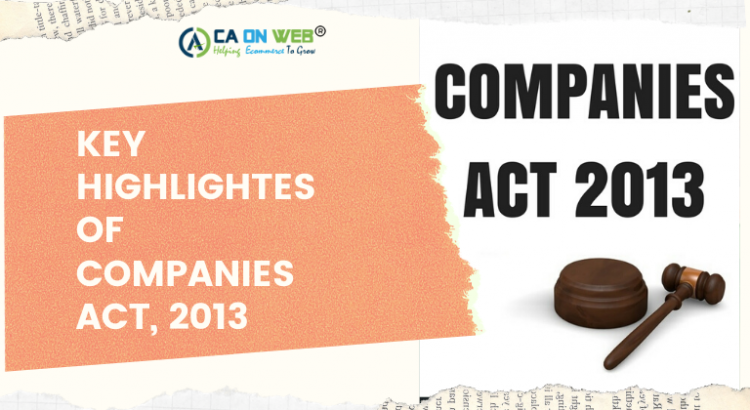Are you considering to start a business, but you’re unsure about your funding situation and whether you’ll be able to cover all of the startup costs by yourself or not? You could be unsure of whether to choose a private limited company or an one person company registration. This blog will clear your choices.
Table of Difference Between private limited company & OPC registration:
| Basis of Difference | One Person Company (OPC) | Private Limited Company (Pvt Ltd) |
| Meaning | A One Person Company combines the sole proprietorship and company business structures. The idea opened up opulent possibilities for sole proprietors and other independent business owners who can benefit from Limited liability and corporatization. | A Private Limited Corporation is a separate legal entity from its Directors or Shareholders. A pvt ltd company must have at least two shareholders in order to be incorporated. |
| Number of Owner/ Members | It has only 1 owner. | It has a minimum of 2 owners or members and a maximum of 200. |
| Share Capital | Share capital and Share of profit are held 100% right by one person. | Rights of share capital and profits are distributed among all owners/members as per the article of association. (AOA) |
| Transfer of Share | Not Applicable | As per the terms and conditions decided in the article of association many types of limitations are imposed by the AOA. |
| Share Prospectus | Not Applicable | No need to issue Prospectus. |
| Number of Directors | It must have at least 1 Directors and it can have a maximum of 15 Numbers of Directors. | It must have at least 2 Directors and it can have a maximum of 15 Numbers of Directors. |
| Name of Company | The word ‘OPC’ is used as part of the name of the company. | The word ‘Private Limited’ is used as part of the name of the company. |
| Funds Raising | It has on one owner so it is not possible to raise funds by issue of shares of the company. | With the agreement of all the company’s shareholders, shares of the company may be issued in order to raise money. |

Points of Differences Between Private Limited and one person company registration
1. Ownership and Regulation:
The employees’ ownership of a company is indicated by their shareholdings. In the case of one person company registration, ownership is held by a single member and is not shared with any other party. A member who owns 100% of the business is independent and has the flexibility to do whatever they want, as long as they abide by all applicable rules and regulations. He can simultaneously become a shareholder and a director and seize total authority, which is not feasible in the case of a private company. The Private Corporation always has at least two members with equal ownership. As a result, decision-making freedom is constrained and dependent. The directors chosen by the shareholders make all managerial decisions. The percentage of shares that each member owns determines their voting power.
2. Activities in OPC & Pvt. Ltd. Company:
The one-person company registration is not allowed for a specific set of authorized business activities. No OPC as an organization may engage in activities like non-banking financial activities, investing in securities, etc. Private Companies are permitted to engage in these types of operations with the prior consent of the relevant rules.
3. Taxability:
Since the OPC idea is not recognized by the IT Act, such businesses will be treated similarly to other businesses for taxes purposes. Private businesses are subject to a 30% tax rate on their whole income, minus cess and surcharges. Small businesses, however, are subject to the 25% tax rate on all income.
4. Company’s establishment & registration
One Person Companies and Private Companies both have the same costs associated with their formation, however, the costs associated with compliance are somewhat different. In OPC, the cost of compliance is lower than in private companies as it has a long procedure for registration. Each form must be filed, which costs INR 500, reflecting the greater OPC compliance cost. Compared to an OPC, a private limited company has higher compliance costs because of more documentation and paperwork.
5. Audit & Yearly Compliance:
Any business registered under the 2013 Indian Companies Act must undergo an audit. The Yearly Compliance portion is the same. Within 30 days of registration, both OPC and Private Companies must select a statutory auditor. Forms must be filed annually with the Ministry of Corporate Affairs as part of the Annual Compliance. Both must also submit income tax returns for each fiscal year.
6. Investment By The NRI Or Foreign National
Foreign nationals and NRIs can easily establish a private limited business in India, which is one of its biggest benefits. Private Limited Companies can take FDI via the automatic approval procedure. However, under the OPC, only Indian citizens are permitted to form a firm. One-person businesses can no longer accept and receive foreign direct investment.
Related Blog: How to Register a Company in India in 2023 – CAonWeb
7. Additional Compliance:
In comparison to a Private Limited Corporation, OPC is exempt from several regulations, including those for AGMs and Board Meetings. The meetings do not need to be held like those of a private firm because there is only one member and one director. Whereas the Private Company itself benefits from a number of exemptions, OPC is given greater privileges.
8. Conversion of OPC:
In the case of a one-person company registration, there is a restriction on corporate expansion.
OPC must become a private or public company if its paid-up capital surpasses INR 50 Lakh or its annual average revenue exceeds INR 2 Crore.
As a result, this is the upper maximum allowed for operation under the OPC. There are no restrictions or limitations in the case of a private company. Also, a minimum of two years must have passed since the one-person company’s registration if the promoter wants to voluntarily convert the OPC into another company.
Reasons why choose private limited company registration Over OPC Company
We will focus on why private limited company registration is a better choice than OPC.
- Separate legal entity: A private limited company is a separate legal entity from its shareholders. This means the company can own assets, sue and be sued in its name, and enter into contracts. In contrast, an OPC has no separate legal entity, and the sole proprietor is responsible for all the obligations and debts of the business.
- Liability protection: As a shareholder in a private limited company registration, your liability is limited to the amount you have invested in the company. So, if the company faces financial difficulties, your personal assets are protected. This is not the case with an opc registration, where the owner’s personal assets could be at risk.
- Greater funding opportunities: Private limited companies are more attractive to investors and banks, as they have a better capacity to raise capital than opc registration. This allows companies to grow faster and expand their operations.
- Perpetual succession: In a private limited company, the death or departure of a shareholder does not affect the existence or ownership of the company. However, in an OPC, the proprietorship ends with the death or insolvency of the sole member.
- Better credibility and recognition: Private limited companies are more credible and have better recognition compared to OPCs. This makes it easier for companies to do business with vendors, customers, and other stakeholders.
OPC registration fees
The OPC registration fees in India vary depending on the services provided by the Chartered Accountant (CA) firm. Typically, the fees charged by CA firms for OPC registration range from Rs. 7,000 to Rs. 15,000, which includes government fees as well. However, the OPC registration fees may change depending on the following factors Legal structure, Professional fees, Turnaround time, and Additional services such as document drafting, name search, etc. can also increase the overall cost.
Private limited company registration fees
Overall, the total private limited company registration fees can range from Rs. 15,000 to Rs. 1 lakh or more, depending on the aforementioned factors. It is recommended to consult with a CA firm for an accurate estimate, as they can provide tailored services according to the specific requirements of the business like government fees, professional fees etc. The CA firm may also charge for additional services like obtaining Digital Signature Certificates (DSC), Director Identification Numbers (DIN), and other necessary licenses or permits, as required by the company.
With the assistance of Mr Sanket Agarwal you can easily able to choose between both types of registration, they have helped 1000 plus companies worldwide like India, Dubai, Hong Kong etc. Caonweb are offering the best online ca services.

Frequently Asked Question
Q.) Is OPC like a private company?
If an OPC’s average annual revenue over the 3 most recent financial years exceeded 2 crore rupees or its paid-up share capital exceeded 50 rupees. Then OPC is required to transform into a private or public company.
Q.) Can an OPC corporation employ people?
They are permitted to hire as many people as necessary. There can only be one stakeholder at a time. There may be multiple directors and staff in an OPC.
Q.) What is a Pvt Ltd company’s required minimum annual turnover?
Unlike to a one-person firm, a private limited company structure has no restrictions on capital and turnover.
Q.) Which business cannot be transformed into an OPC?
The formation or transfer of One Person or Company is restricted by Section 8 of the Act. OPC cannot acquire securities from other Body Corporates or indulge in other non-banking financial investment activities.
Related Blog: COMPANY REGISTRATION IN DELHI








